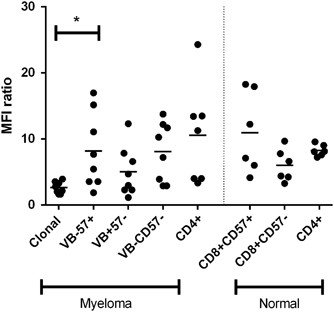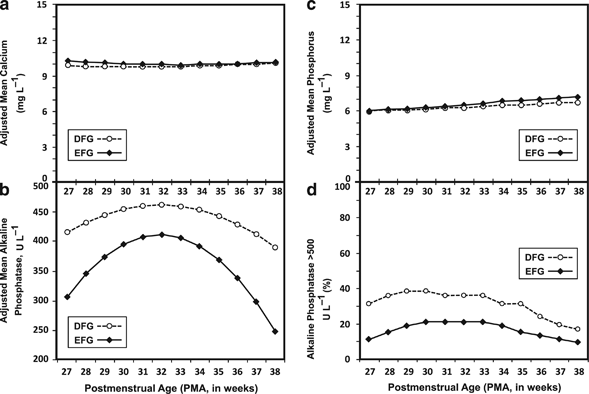
- Select a language for the TTS:
- UK English Female
- UK English Male
- US English Female
- US English Male
- Australian Female
- Australian Male
- Language selected: (auto detect) - EN
Play all audios:
Access through your institution Buy or subscribe The failure of significant clinical responses to immune checkpoint blockade in multiple myeloma in comparison with other lymphoid
malignancies (especially Hodgkin’s lymphoma) raises considerable questions as to our understanding of human T-cell anti-tumour responses in myeloma. The report by Ray _et al._1 presented _in
vitro_ data, which suggested that the inhibition of PD-1/ PD-L1 ligation would be a potentially useful therapeutic modality in myeloma. Although this appears to be supported by preclinical
murine studies, this data is at variance to the observations being reported in clinical studies in myeloma.2 For immune checkpoint inhibition to be a successful modality, there must be
immune recognition of malignant myeloma cells and the presence of T cells that are capable of being activated. Such activation requires T cells to have an exhausted phenotype rather than an
anergic or senescent phenotype as it is the reversal of exhausted T cells rather than the generation of new T cells reacting to the tumour, which is thought to be the key to therapeutic
response. The possibility that cytotoxic T cells against common pathogens may be cross reacting with neoantigens from the tumour has been raised in melanoma,3 and it remains a possibility
that cytotoxic T cells can be activated by checkpoint blockade that cross react against myeloma. It has certainly been possible to educate and generate T cells from myeloma patients to
malignant plasma cell lines and tumour lysates _in vitro_, but whether such _in vitro_ recognition and activation reflects the situation _in vivo_ is unclear. The non-clonal T cells
(CD8+TCRVβ−CD57+) in myeloma are unlikely to be tumour reactive but the specific phenotype of the clonal T cells (CD8+TCRVβ+CD57+CD28−) suggest antigen specific, terminally differentiated,
senescent cells that have lost their ability to proliferate under stimulation. Studies that use pooled cytotoxic CD8+ T cells will contain both clonal and non-clonal T cells and therefore
may not be of clinical significance. This is a preview of subscription content, access via your institution RELEVANT ARTICLES Open Access articles citing this article. * ONCOLYTIC MEASLES
VIRUS THERAPY ENHANCES TUMOR ANTIGEN-SPECIFIC T-CELL RESPONSES IN PATIENTS WITH MULTIPLE MYELOMA * Nandakumar Packiriswamy * , Deepak Upreti * … Stephen J. Russell _Leukemia_ Open Access 23
April 2020 * DEVELOPMENT OF A PROTEIN-BASED SYSTEM FOR TRANSIENT EPIGENETIC REPRESSION OF IMMUNE CHECKPOINT MOLECULE AND ENHANCEMENT OF ANTITUMOUR ACTIVITY OF NATURAL KILLER CELLS * Yoichi
Teratake * , Tomoki Takashina * … Yukihito Ishizaka _British Journal of Cancer_ Open Access 21 January 2020 * CARFILZOMIB ALTERS THE HLA-PRESENTED PEPTIDOME OF MYELOMA CELLS AND IMPAIRS
PRESENTATION OF PEPTIDES WITH AROMATIC C-TERMINI * D J Kowalewski * , S Walz * … J S Stickel _Blood Cancer Journal_ Open Access 08 April 2016 ACCESS OPTIONS Access through your institution
Subscribe to this journal Receive 12 print issues and online access $259.00 per year only $21.58 per issue Learn more Buy this article * Purchase on SpringerLink * Instant access to full
article PDF Buy now Prices may be subject to local taxes which are calculated during checkout ADDITIONAL ACCESS OPTIONS: * Log in * Learn about institutional subscriptions * Read our FAQs *
Contact customer support REFERENCES * Ray A, Das DS, Song Y, Richardson P, Munshi NC, Chauhan D _et al_. Targeting PD1-PDL1 immune checkpoint in plasmacytoid dendritic cells interactions
with T cells, natural killer cells and multiple myeloma cells. _Leukemia_ 2015; 29:1441–1444. Article CAS PubMed PubMed Central Google Scholar * Lesokhin AM, Ansell SM, Armand P, Scott
EC, Halwani A, Gutierrez M _et al_. Preliminary results of a phase I study of Nivolumab (BMS-936558) in patients with relapsed or refractory lymphoid malignancies. _Blood_ 2014; 124: 291.
Google Scholar * Snyder A, Makarov V, Merghoub T, Yuan J, Zaretsky JM, Desrichard A _et al_. Genetic basis for clinical response to CTLA-4 blockade in melanoma. _N Engl J Med_ 2014; 371:
2189–2199. Article PubMed PubMed Central Google Scholar * Sze DM, Giesajtis G, Brown RD, Raitakari M, Gibson J, Ho J _et al_. Clonal cytotoxic T cells are expanded in myeloma and reside
in the CD8(+)CD57(+)CD28(−) compartment. _Blood_ 2001; 98: 2817–2827. Article CAS PubMed Google Scholar * Brown RD, Spencer A, Ho PJ, Kennedy N, Kabani K, Yang S _et al_. Prognostically
significant cytotoxic T cell clones are stimulated after thalidomide therapy in patients with multiple myeloma. _Leuk Lymphoma_ 2009; 50: 1860–1864. Article CAS PubMed Google Scholar *
Bryant C, Suen H, Brown R, Yang S, Favaloro J, Aklilu E _et al_. Long-term survival in multiple myeloma is associated with a distinct immunological profile, which includes proliferative
cytotoxic T-cell clones and a favourable Treg/Th17 balance. _Blood Cancer J_ 2013; 3: e148. Article CAS PubMed PubMed Central Google Scholar * Suen H, Joshua DE, Brown RD, Yang S,
Barbaro PM, Ho PJ _et al_. Protective cytotoxic clonal T-cells in myeloma have the characteristics of telomere-independent senescence rather than an exhausted or anergic phenotype:
Implications for immunotherapy. _Blood_ 2014; 124: 3367. Google Scholar * Monteiro J, Batliwalla F, Ostrer H, Gregersen PK . Shortened telomeres in clonally expanded CD28-CD8+ T cells imply
a replicative history that is distinct from their CD28+CD8+ counterparts. _J Immunol_ 1996; 156: 3587–3590. CAS PubMed Google Scholar Download references AUTHOR INFORMATION AUTHORS AND
AFFILIATIONS * Institute of Haematology, Royal Prince Alfred Hospital, Sydney, New South Wales, Australia H Suen, R Brown, S Yang, P J Ho, J Gibson & D Joshua Authors * H Suen View
author publications You can also search for this author inPubMed Google Scholar * R Brown View author publications You can also search for this author inPubMed Google Scholar * S Yang View
author publications You can also search for this author inPubMed Google Scholar * P J Ho View author publications You can also search for this author inPubMed Google Scholar * J Gibson View
author publications You can also search for this author inPubMed Google Scholar * D Joshua View author publications You can also search for this author inPubMed Google Scholar CORRESPONDING
AUTHOR Correspondence to H Suen. ETHICS DECLARATIONS COMPETING INTERESTS The authors declare no conflict of interest. RIGHTS AND PERMISSIONS Reprints and permissions ABOUT THIS ARTICLE CITE
THIS ARTICLE Suen, H., Brown, R., Yang, S. _et al._ The failure of immune checkpoint blockade in multiple myeloma with PD-1 inhibitors in a phase 1 study. _Leukemia_ 29, 1621–1622 (2015).
https://doi.org/10.1038/leu.2015.104 Download citation * Published: 19 May 2015 * Issue Date: July 2015 * DOI: https://doi.org/10.1038/leu.2015.104 SHARE THIS ARTICLE Anyone you share the
following link with will be able to read this content: Get shareable link Sorry, a shareable link is not currently available for this article. Copy to clipboard Provided by the Springer
Nature SharedIt content-sharing initiative




